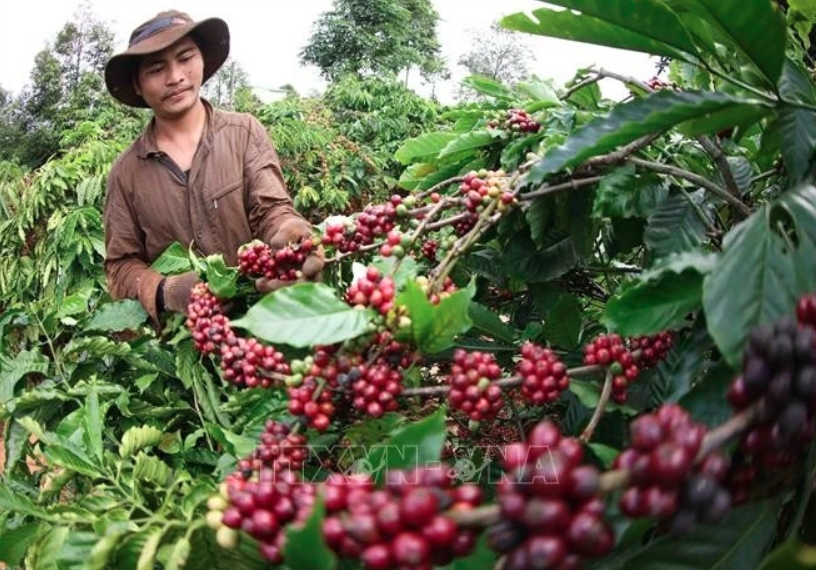Coffee sector seeks ways toward sustainable growth
Vietnam is known as one of the world’s leading producers and exporters of coffee, however, it took nearly a century for coffee exports to surpass the US$5 billion mark for the first time in 2024.
The key challenge now is how to sustain this growth trajectory in a stable and sustainable way, amidst an unpredictable and volatile market - an issue that many businesses and industries are seeking a solution for 2025 and beyond.
Growth fuelled by price surge
In the 2023-2024 coffee season from October 2023 to September 2024, Vietnam exported 1.45 million tonnes of coffee, with a total revenue of nearly US$5.43 billion. Although the quantity decreased by 12.7%, the value increased by 33% compared to the previous season.
Since the beginning of 2024 to December 15, coffee exports reached US$5.2 billion, making it become the third agricultural product in Vietnam, after fruits and vegetables, and rice, to exceed the US$5 billion mark.
Do Ha Nam, vice president of the Vietnam Coffee-Cocoa Association (Vicofa), stated that the sharp increase in coffee export revenue was thanks to the unprecedented price surge in the first half of 2024. During the 2023-2024 coffee season, with forecast production declines in many major coffee-producing countries, the market saw continuous price hikes. For the first time, the price of Robusta coffee on the London coffee futures market surpassed US$5,000 per tonne, with Robusta coffee prices higher than those of Arabica coffee, whereas previously it was always priced lower. Domestically, coffee prices also reached new heights, hitting the highest level in the past 30 years, even surpassing export prices.
Overall, during the 2023-2024 season, the average export price of coffee was US$3,673 per tonne, nearly 50% higher than in the previous season. With this increase, coffee has become the agricultural product with the highest price growth among Vietnam's key export commodities.
How to affirm value
Nguyen Quang Binh, a coffee market expert, said that both the global and domestic coffee markets are expected to remain volatile, requiring the sector to adjust quickly to stay on track and maintain sustainable growth.
The immediate task for Vietnam's coffee industry is to address the gaps in the supply chain and restore its credibility with export partners, stated Binh.
Meanwhile, farmers should prioritise improving coffee quality, rather than expanding area indiscriminately, which can lead to an oversupply.
In addition to purchasing and exporting raw coffee, businesses need to actively invest in processing and deep processing of value-added products to ensure long-term sustainable growth.
With years of experience in coffee exports, Phan Minh Thong, CEO of Phuc Sinh Joint Stock Company, shared although Vietnam has a large production volume, Vietnamese coffee is often associated with lower quality, which results in much lower value compared to other countries.
Therefore, Vietnam must focus on improving the quality and creating more distinctive, higher-value products rather than just raw coffee. This is not merely a suggestion for opportunity, but a trend that needs to be embraced in order to increase the value and build the brand of Vietnamese coffee.
In addition, sustainable development and the practice of production that meets Environmental, Social, and Governance (ESG) criteria have become an irreversible global trend. Therefore, in order to sell products globally, and particularly to important markets like the EU, there is no other way forward - businesses must collaborate with farmers to build a production-processing chain that meets these standards, Thong stressed.



